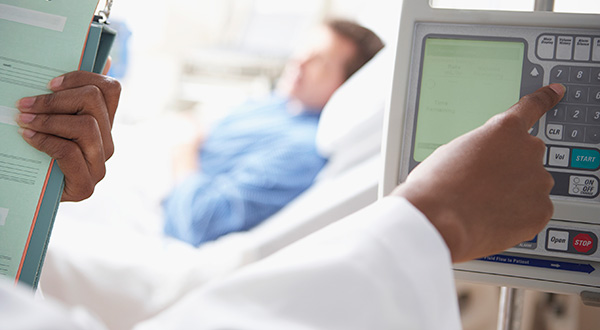The Levin, Papantonio law firm recently filed the first Benicar lawsuit in the United States on behalf of a Texas man who allegedly developed a severe gastrointestinal condition after taking the hypertension drug Benicar (olmesartan medoxomil). Now, Japanese drug-maker Daiichi Sankyo is facing several additional Benicar lawsuits from patients who took Benicar and developed sprue-like enteropathy, which causes severe and chronic gastrointestinal symptoms such as diarrhea, extreme weight loss, and dehydration.
“Because the symptoms of sprue-like enteropathy mimic those commonly associated with celiac disease, an adverse health event where the body is intolerant to gluten, this has resulted in lengthy delays in proper treatment for several individuals suffering from Benicar-induced sprue-like enteropathy,” commented Daniel Nigh, a Benicar lawyer with the Levin, Papantonio law firm. “If left untreated, sprue-like enteropathy can have lasting and damaging effects on the body.”
The recent Benicar lawsuit filed by Levin, Papantonio alleges that the plaintiff suffered severe and chronic diarrhea, weight loss, dehydration, and overall malnutrition. Levin, Papantonio expects to file several more Benicar lawsuits alleging sprue-like enteropathy in the following months.
The Benicar lawsuit site has also been launched by the firm to help assist those who may have suffered injuries from the side effects of taking Benicar. Those seeking to file a Benicar lawsuit can have their situation evaluated for free by a Benicar lawyer through the Benicar lawsuit site.
In 2013, several studies linked Benicar use to the development of sprue-like enteropathy, including a Mayo Clinic study by gastroenterologist, Dr. Joseph Murray.
Murray was the first to make the connection between Benicar and the development of sprue-like enteropathy after he observed Benicar users with suspected celiac disease experience relief from their gastrointestinal symptoms after discontinuing the use of Benicar.
Murray conducted a follow-up study over the next three years and observed similar results. He identified and observed a group of 22 Benicar users with suspected celiac disease experiencing severe gastrointestinal symptoms. Upon the discontinuation of Benicar, all patients in the group gained weight and experienced relief of their symptoms.
The Mayo Clinic study prompted the U.S. Food and Drug Administration to launch an investigation into the link between Benicar and sprue-like enteropathy. An update to Benicar’s warning label was approved by the FDA in July 2013, and reflects Murray’s recent findings on Benicar-induced sprue-like enteropathy.
Benicar belongs to a class of drugs known as angiotensin receptor blockers (ARB), and is prescribed to patients to treat high blood pressure. Benicar was approved by the FDA in 2002, and in 2012, nearly 2 million patients received a prescription for Benicar to treat their hypertension.
Krysta is a writer and researcher with Ring of Fire. Follow her on Twitter @KrystaLoera.





